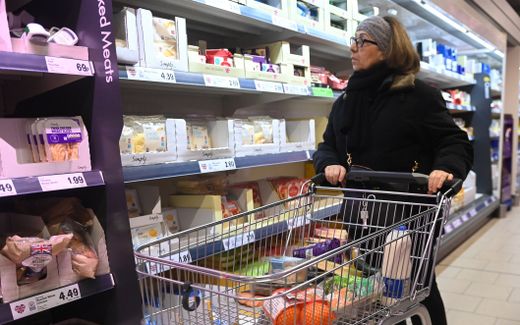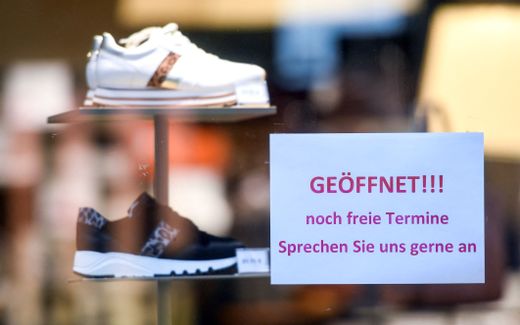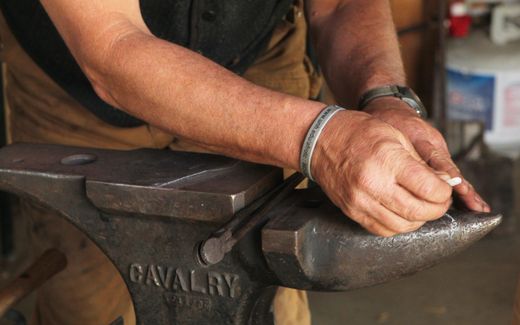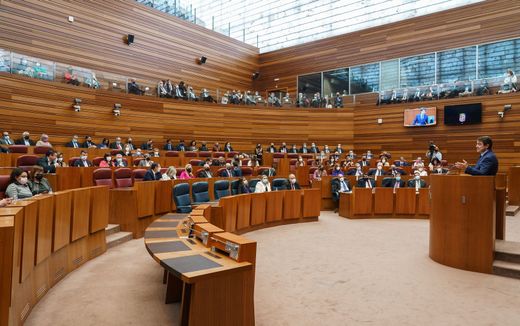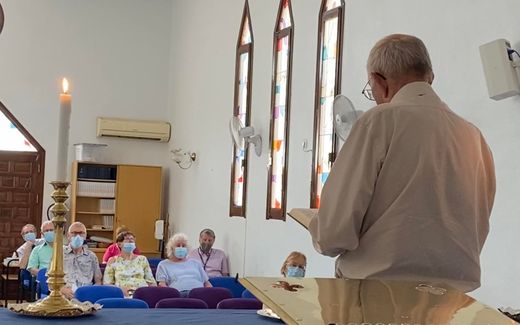Column from Spain: Voting on Sunday can be a dilemma for Christians
09-06-2023
Christian Life
Jorge Ruiz Ortiz. CNE.news
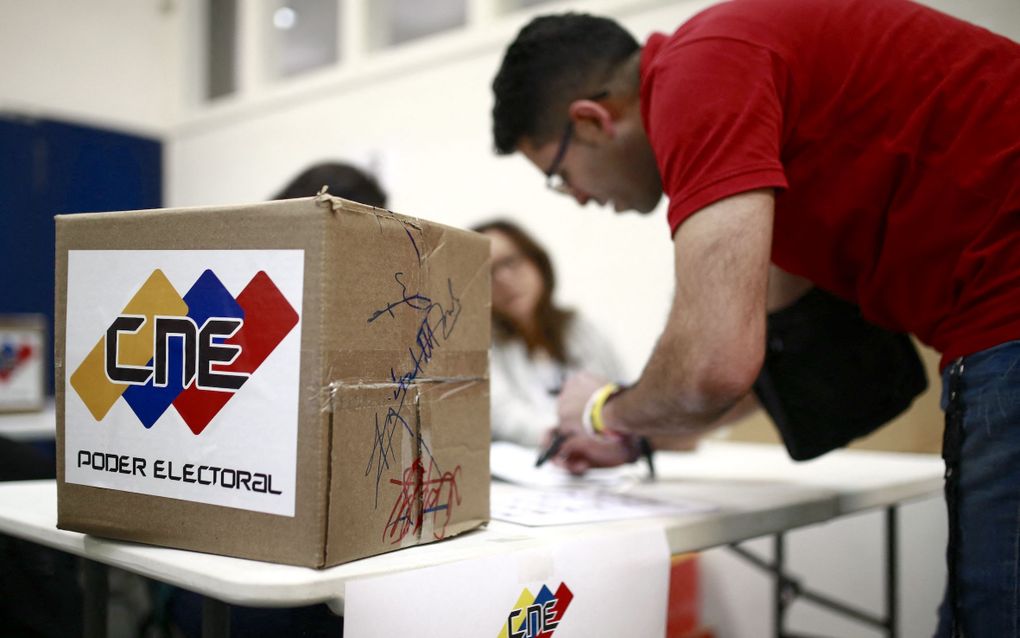
In Spain, elections are usually on Sunday now. Christians who celebrate this day as the Lord's Day, have a dilemma here. They would love to see more reforms in politics. Photo AFP, Benjamin Cremel
Christian Life
The elections come earlier this year. Not in December but in July. But worse is the fact that the vote is on Sunday. For Christians who keep this as the Lord’s Day, this means an extra separation from the world of politics.
After the defeat of the Socialist Party in the recent municipal and regional elections, the President of the Government has called for a general election on July 23rd. The polls were expected next December.
This call perpetuates the irreverent tradition of holding elections on Sunday, Domingo (from Dominicus, the Lord’s Day). This was not the case in the first two democratic general elections (1979 and 1982). They were held on working days. The first general elections held on the Lord’s Day were in 1986, called precisely by the Socialist Party. Since then, all political parties have perpetuated this tradition that I see as sacrilegious.
Desecration
Voting on Sunday is a desecration of the Lord’s Day. The fact that rulers in Spain summon the citizenry to vote precisely on Lord’s Day cannot be considered in any other way than defiance and mockery of God and religion. Inevitably, the idea is transmitted to the population that God’s commandments are only there to be transgressed.
If this is done with the commandment of the First Tablet of the Decalogue, which is closest at hand, what will not be done with the rest of the commandments of the Second Tablet?
However, if the political class wanted to encourage high participation in the elections, they would call them for any weekday. In this way, participating in elections would be clearly perceived by all as a civic and necessary duty, on the same level as working, studying or buying the day’s food.
The last general election, in 2019, saw the lowest turnout in democratic times: 66 per cent. That the current government has called the next elections on Sunday and in the high season of summer vacations in Spain, from the outset, does not augur that now there will be a record high turnout, precisely.
Promises
We can’t predict the outcome of the elections. But suppose the same voting trend of the last municipal and regional elections is maintained. In that case, the winner will be none other than the Partido Popular. But it will need the support of the most conservative and nationalist party, Vox. The Popular Party candidate, Alberto Núñez Feijoo, has already announced that he will repeal the “Trans” and Historical Memory laws recently approved and make other “adjustments” to the laws on euthanasia and education.
The problem with these electoral promises is that Spain’s last two prime ministers (Mariano Rajoy and Pedro Sánchez) have almost systematically failed to fulfil their promises and commitments.
The most splendid case of this was, perhaps, that Rajoy promised in 2011 to repeal the abortion reform from the previous socialist government. And indeed, the Popular government drafted a new law. But faced with the barrage of criticism from the progressive media (the vast majority in the country), it ultimately withdrew it from the same Council of Ministers that had to approve it. As a result, the abortion law remains intact and untouched to this day, entirely in force. Who can say that the same will not happen with these other laws?
Certainly, the credibility of the political class, for these and many other reasons, is in crisis today.
Duties
If participating in elections on Sunday is, in principle, unacceptable for Christians, and the credibility of politicians does not precisely invite us to make our lives difficult by voting for them beforehand by mail, what should Christians do? To insist, even from the pulpits, that we come to fulfil our so-called civic rights and duties? To come, we, Christians, as a saviour of this fallen social and political world?

Slowly, but inexorably, a rejection of the political class has been spreading among the population, possibly destroying its legitimacy. The national and regional parliaments in the country have 1817 members in total. But the political class is much, much larger than this. The most conservative figures speak of “only” 100,000 politicians in the pay of the public coffers. Which, in 2022, meant an expenditure of some 2621 million euros per year – that is to say, the equivalent to the budget of an entire Ministry of Education.
To put it simply, people do not understand the need for so many politicians in Spain. Especially when the older ones still remember the times when there were hardly any politicians, and those who did exist, the mayors and councillors in the towns, performed their services honourably and voluntarily without receiving a salary.
And note that so far, we have yet to speak a single word about the biggest problem of all, which, in one way or another, hangs over all political parties, without exception: corruption.

Wait
What are we, Christians, to do in this context? Surely, the only viable option of all is to wait. Let’s see if the country’s political system can receive the calls for attention that the citizens have been making for some time now. Undoubtedly, the best thing is that it assumes this problem and proceeds to a true political regeneration.
And if not, they can continue doing whatever they want. We will see, then, how long it will all last.
Jorge Ruiz (1969) was born in Barcelona, Spain. At the age of 19, he was converted to the Christian faith.
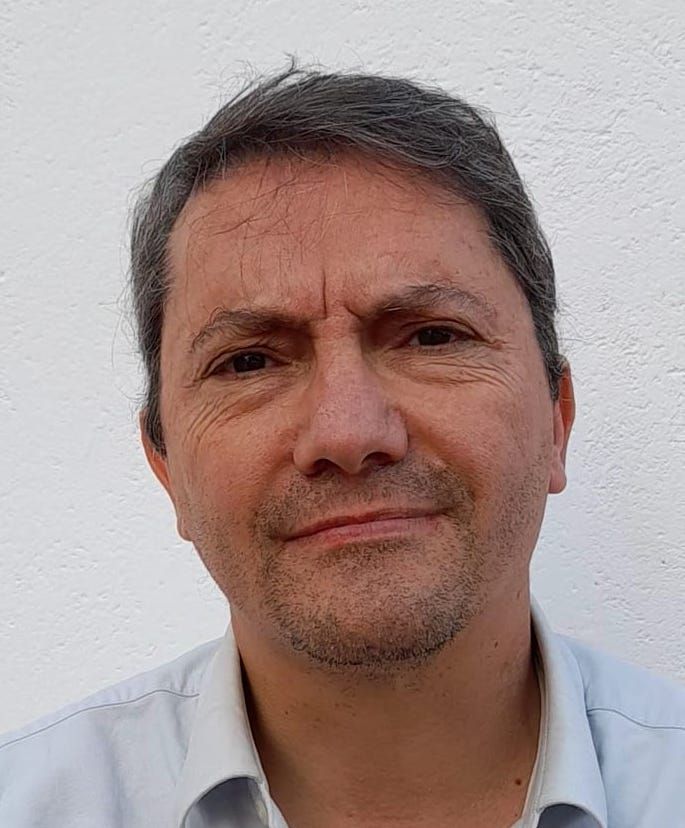
He graduated in Journalism at the University of Barcelona and received a PhD in Theology at the Faculté Libre de Théologie Réformée in Aix-en-Provence, France. He serves as a Protestant pastor in the Iglesia Reformada Continuada, in Rubí (Barcelona, Spain). He is assessor for the Trinitarian Bible Society for the Spanish and French projects. He is married and father of four.
Related Articles

